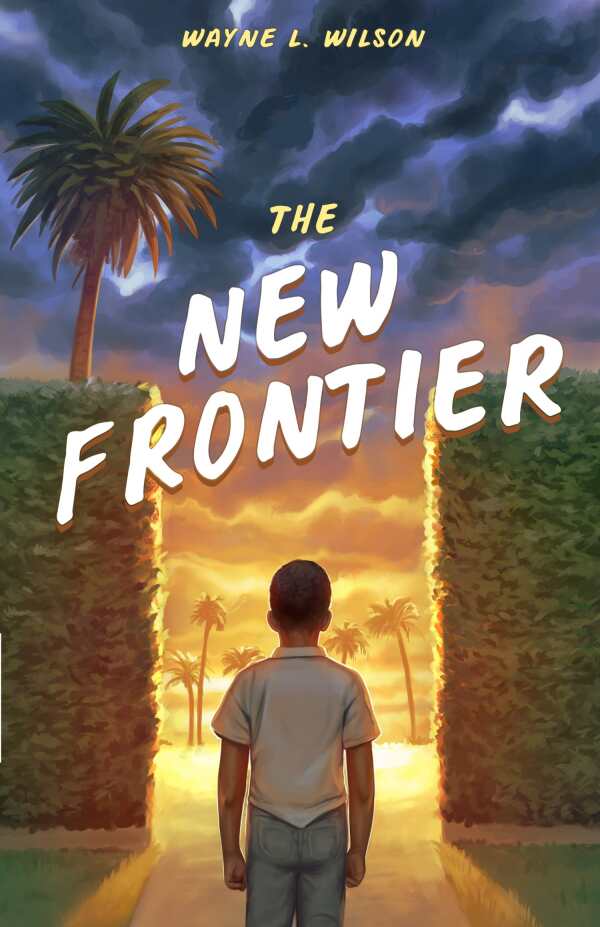The New Frontier
A boy learns resilience following a life-altering move in the arresting historical novel The New Frontier.
In Wayne L. Wilson’s tense historical novel The New Frontier, a Black adolescent confronts racism and other dangers when he moves to an all-white neighborhood in Los Angeles.
In the summer of 1961, Samuel’s parents are first-time homeowners and dreamers. Samuel’s father is optimistic: inspired by the civil rights protests in the South, he views his family’s move to a new home as pioneering. And his mother is practical, sharing her advice with Samuel in a warm and perceptive manner. But Samuel overhears conversations and knows that trouble still lurks, even in paradisial California. His imagination is also vivid, maintaining his childhood fears of the bogeyman.
Samuel’s story progresses, at first, through memories of his previous energetic community, populated by his neighbors and parents. He’s fond of pop culture references, including to Dorothy Dandridge and Gumby, and he tends to have a heightened sense of his own experiences. A keen, entertaining narrator, he revels in visiting the barber shop, attending a church known for its fever-pitch revivals, and becoming semi-legendary due to a street mishap that his friends witness. He pipes up in defense of his father and reverts to childhood longing too.
Samuel’s everyday boyhood experiences are tinged with growing awareness about social hardships, as when his encounter with a textbook bully leads to humanizing discoveries about the boy’s fractured home life. He feels fear regarding a predatory neighbor, too, though this storyline is handled in an abrupt manner that relies on a damaging trope regarding the ugliness of evil. Herein, it takes extreme measures to shake people out of their easy assumptions.
Samuel’s impressions of others, especially of other Black families, reveal a cross-section of people who are grieved by misfortune, yet determined to help each other—a shifting cast whose vibrant experiences are handled in occasional isolation. The community is also held together by shared faith and music that act as an effective counterpoint to the alienation that Samuel feels once his family moves. His family faces new problems, including vandalism, because they are the first Black family on the street. His new friendship with a girl is a source of reprieve, even though it brings trouble from a neighbor. His realization that his family is not the only family that has had to endure such challenges is edifying.
In the arresting historical novel The New Frontier, a boy who’s enamored of comic-book feats confronts dark truths and real villains in the suburbs.
Reviewed by
Karen Rigby
Disclosure: This article is not an endorsement, but a review. The publisher of this book provided free copies of the book and paid a small fee to have their book reviewed by a professional reviewer. Foreword Reviews and Clarion Reviews make no guarantee that the publisher will receive a positive review. Foreword Magazine, Inc. is disclosing this in accordance with the Federal Trade Commission’s 16 CFR, Part 255.

